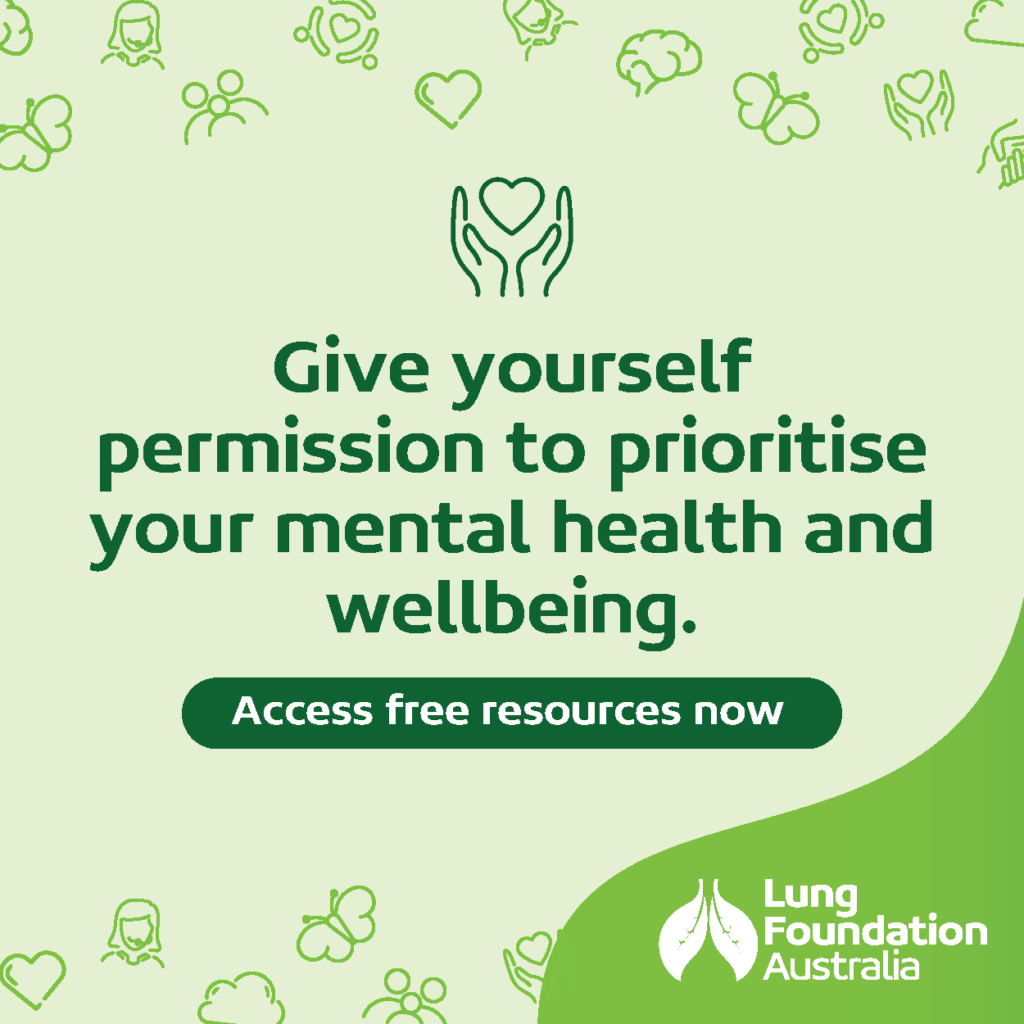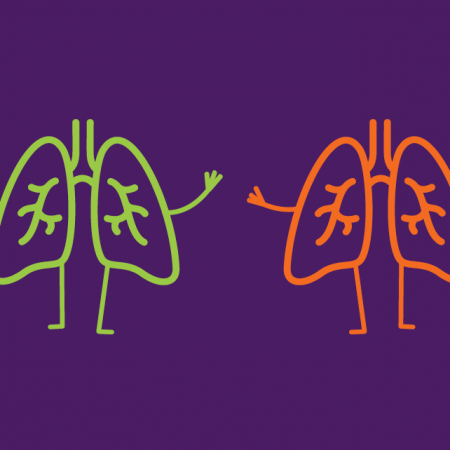Being diagnosed with a lung disease can be overwhelming but you may find that living with a lung condition in a COVID-19 world is even more challenging than before.
You may find yourself being unfairly judged when experiencing symptoms of a lung condition, such as coughing, mucous production and breathlessness.
Lung Foundation Australia Respiratory Care Nurse, Amanda, says while there has never been so much focus on respiratory health, you will inevitably encounter people unaware of what it’s like living with, or caring for someone with, a lung condition.
Confronting unfair assumptions and stigma
Amanda says it’s important to remember that you’re not alone. There is also no right or wrong way to manage people’s perceptions, but you shouldn’t feel guilty.
“Before COVID-19 hit, if you were coughing while at the supermarket, exercising or waiting for a doctor’s appointment, someone probably would have offered you a glass of water and been genuinely concerned,” she says.
“Now, we find responses to coughing changing due to the heightened awareness of any respiratory symptoms and people adhering to the recommended guidelines such as social distancing and avoiding possible exposure to someone who is unwell.”
Tips and coping mechanisms
There are some effective ways to help cope and mange living with a lung condition in a COVID-19 world.
- Don’t be afraid to speak up: Sharon, who lives with bronchiectasis, says simply speaking up can make a difference and can also raise awareness and understanding.
“It was challenging when I first started to go out. I began wearing a mask early on but even then, at places such as the supermarket, some people would react badly if I coughed. And, of course, living with bronchiectasis, I frequently cough and have tight sounding breathing. When I did say, ‘I don’t have COVID but a lung condition’, it felt good to be strong enough to do that. I wanted to be able to reassure them.”
- Know when to walk away: Sometimes silence is the best weapon. In some cases, simply tell yourself that you are not going to enable the discussion. Silence allows time for you to process what has been said or happened, to identify the feeling that it has caused and ideally to then move on.
- Develop your own description: Often when we are caught off guard, we are not given the opportunity to prepare a response, and this can cause a fight, fight or freeze moment. Having a pre-prepared response that you know well and feel comfortable to say can help you to stay in control in the moment.
- Allow yourself to feel hurt: Sometime people’s comments, stares or behaviour will upset you, that is unavoidable. Allow yourself to feel upset and, if appropriate, tell them so … and move on.
Lung Foundation Australia’s Information and Support Centre team can connect you with information and services to help you to live well with a lung condition. Book a call with the team here or free call 1800 654 301 Monday to Friday, 8am-4:30pm (AEST).

Mind matters
Our Mind Matters mental health hub has videos, blogs and resources with strategies to help you monitor your emotional wellbeing and mental health.



